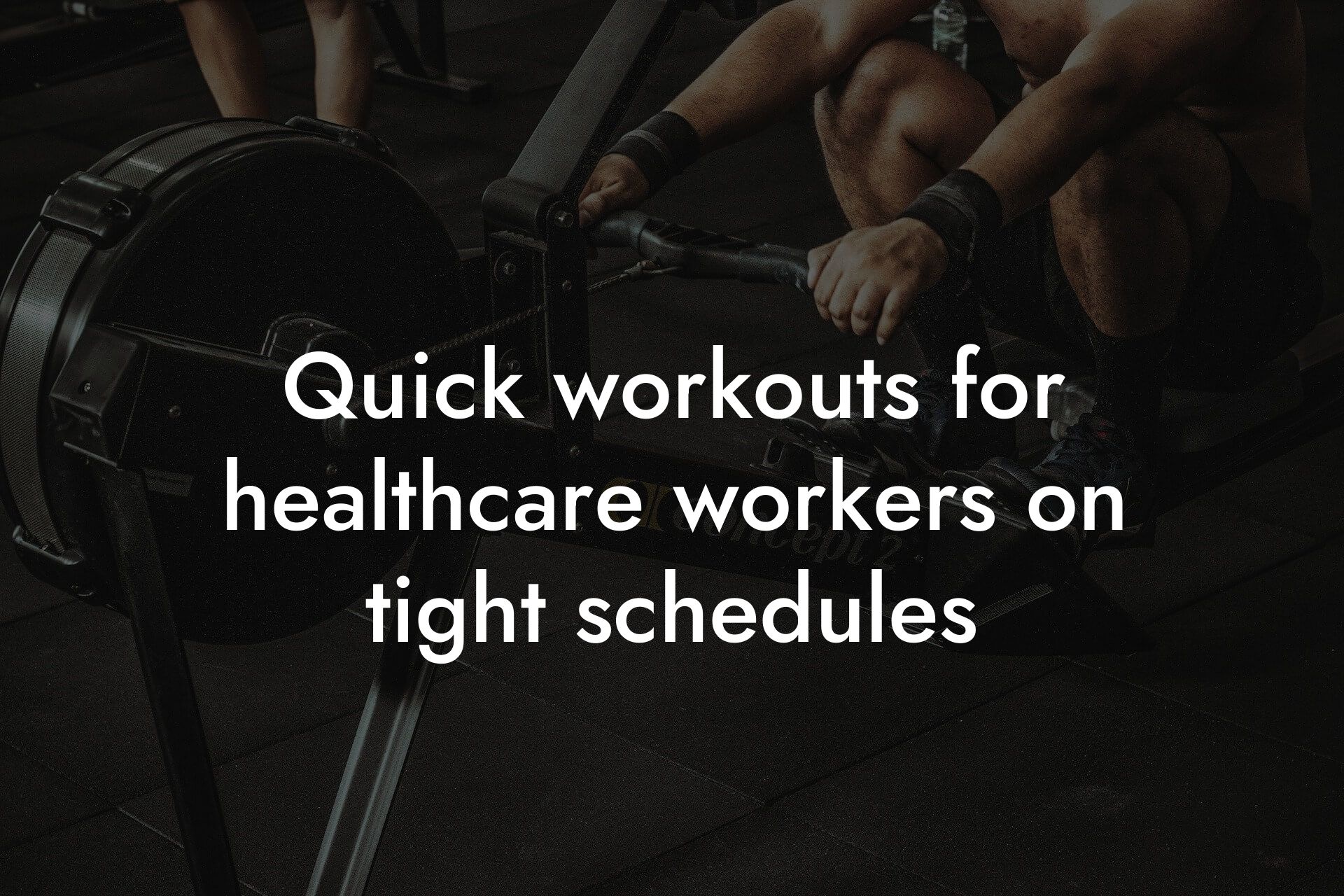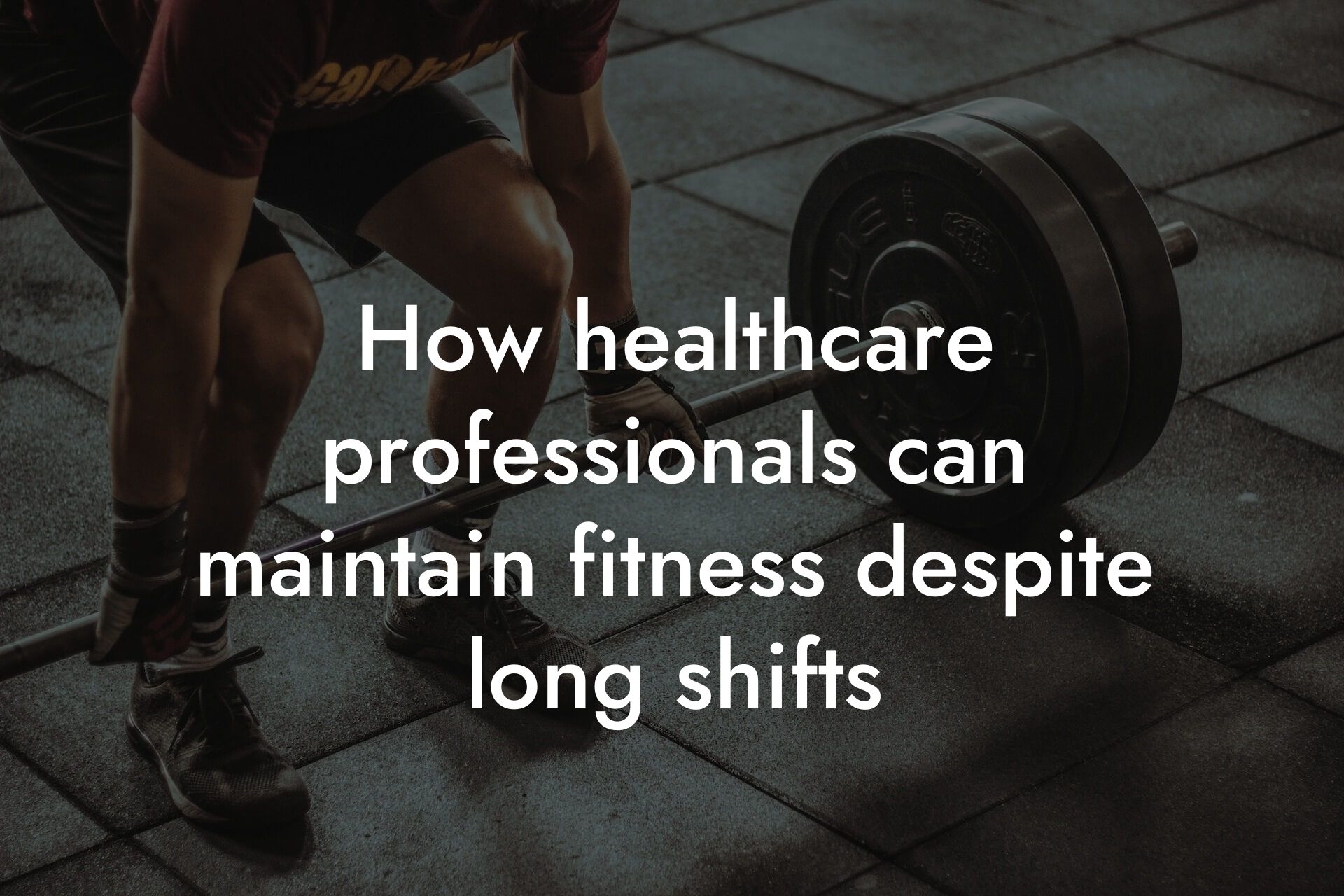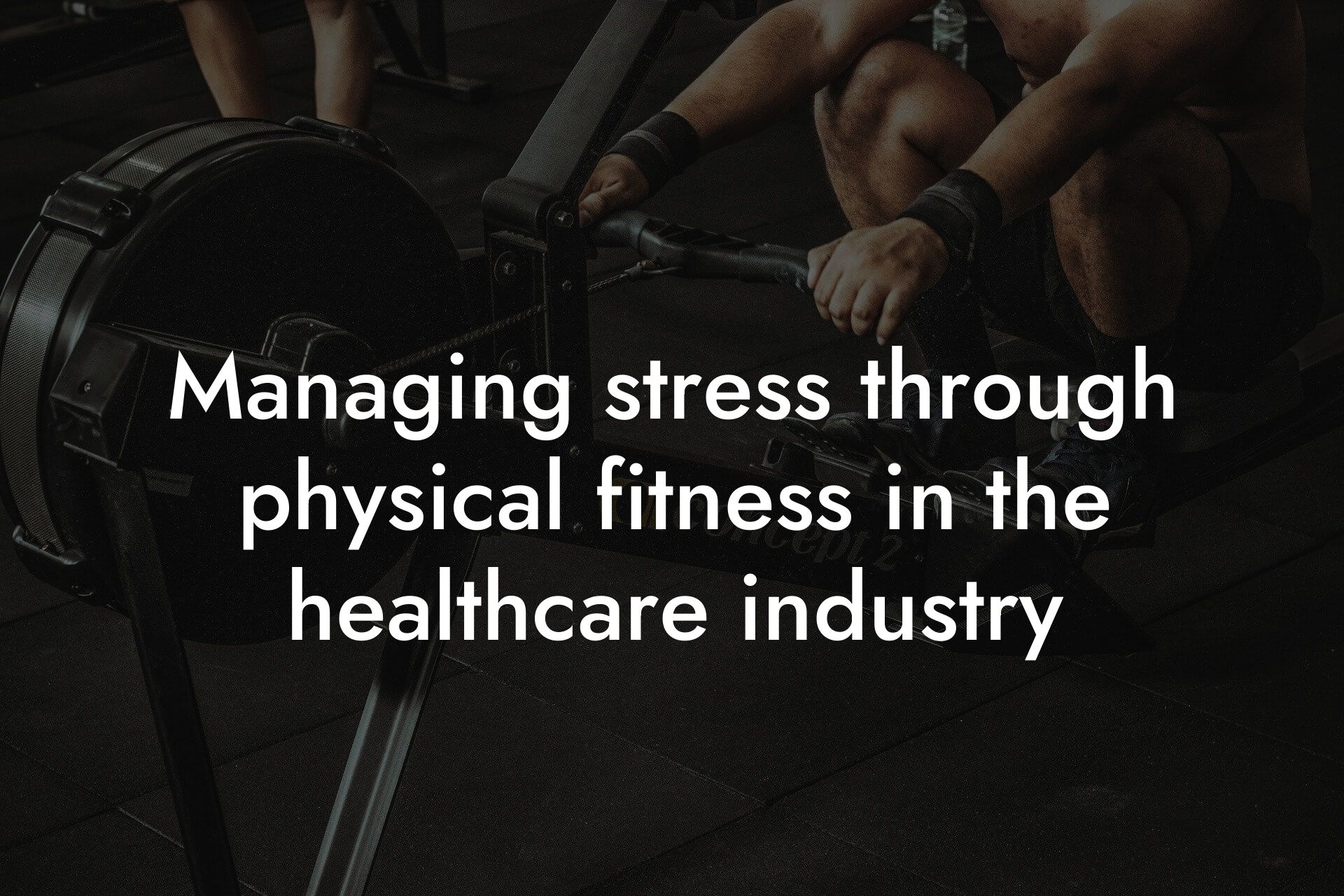As a high-earning professional, you understand the importance of optimal physical performance to excel in your field. However, long surgeries can be physically demanding and require a unique set of nutrition strategies to maintain energy levels and support overall health. In this article, we'll delve into the specific nutrition needs of surgeons and provide actionable tips to help you power through even the most demanding procedures.
Table of Contents
The Physiological Demands of Surgery
Surgery is a physically and mentally demanding profession that requires focus, concentration, and stamina. Long surgeries, in particular, can lead to fatigue, decreased cognitive function, and reduced dexterity, all of which can compromise patient care. The physical demands of surgery include:
- Prolonged periods of standing and moving
- Concentration and focus for extended periods
- Manual dexterity and fine motor skills
- Emotional stress and high-pressure decision-making
These demands can lead to energy depletion, making it essential for surgeons to prioritize nutrition strategies that support energy production, reduce fatigue, and promote overall well-being.
Macronutrient Requirements for Energy
During long surgeries, surgeons require a balanced mix of macronutrients to maintain energy levels. The optimal macronutrient ratio for energy production is:
- Carbohydrates: 45-65% of total daily calories
- Protein: 15-20% of total daily calories
- Fat: 20-30% of total daily calories
Carbohydrates are the primary source of energy for the brain and muscles, while protein is essential for muscle maintenance and repair. Fat provides sustained energy and supports hormone production. A balanced macronutrient intake ensures that energy levels remain stable throughout the surgery.
Electrolyte Balance and Hydration
Electrolytes, such as sodium, potassium, and magnesium, play a crucial role in maintaining energy production and nerve function. During long surgeries, electrolyte imbalances can occur due to:
- Sweat loss
- Inadequate hydration
- Prolonged periods of standing
To maintain electrolyte balance and hydration, surgeons should:
- Drink electrolyte-rich beverages, such as coconut water or sports drinks
- Consume electrolyte-rich foods, such as bananas, avocados, and nuts
- Avoid caffeine and sugary drinks that can exacerbate dehydration
B Vitamins and Energy Production
B vitamins, particularly thiamine, riboflavin, and niacin, play a crucial role in energy production. These vitamins are essential for:
- Converting carbohydrates into energy
- Maintaining nerve function and transmission
- Supporting immune function
Surgeons can ensure adequate B vitamin intake by consuming:
- B vitamin-rich foods, such as lean meats, fish, and whole grains
- B vitamin supplements, such as vitamin B complex or individual B vitamins
Fueling for Long Surgeries
When preparing for a long surgery, it's essential to fuel your body with the right foods to maintain energy levels. Consider the following meal and snack options:
- Complex carbohydrates, such as whole grain bread, pasta, and rice
- Protein-rich foods, such as lean meats, fish, and eggs
- Healthy fats, such as nuts, seeds, and avocados
- Electrolyte-rich foods and beverages, such as coconut water and bananas
Aim to consume a balanced meal 1-2 hours before the surgery, and snack on electrolyte-rich foods and beverages throughout the procedure.
Caffeine and Energy
Caffeine can be a useful tool for surgeons to boost energy levels during long surgeries. However, it's essential to consume caffeine in moderation to avoid:
- Jitters and anxiety
- Dehydration
- Disrupted sleep patterns
Surgeons should aim to consume 100-200mg of caffeine, equivalent to 1-2 cups of coffee, 30-60 minutes before the surgery. Avoid consuming caffeine during the procedure to minimize dehydration and jitters.
Post-Surgery Recovery
After a long surgery, it's essential to prioritize recovery and replenish energy stores. Consider the following strategies:
- Consume a balanced meal with complex carbohydrates, protein, and healthy fats within 1-2 hours after the surgery
- Stay hydrated by drinking electrolyte-rich beverages
- Avoid heavy exercise or strenuous activity for 24-48 hours after the surgery
- Get adequate sleep, aiming for 7-9 hours of restful sleep
By prioritizing nutrition and recovery strategies, surgeons can optimize their physical performance, reduce fatigue, and improve overall well-being.
Long surgeries require a unique set of nutrition strategies to maintain energy levels, reduce fatigue, and promote overall well-being. By prioritizing macronutrient balance, electrolyte balance, B vitamins, and fueling strategies, surgeons can optimize their physical performance and provide the best possible care for their patients. Remember to stay hydrated, fueled, and focused to power through even the most demanding procedures.
Frequently Asked Questions
What are the energy demands of long surgeries?
Long surgeries can be extremely energy-demanding, requiring surgeons to maintain focus, concentration, and physical stamina for extended periods. The energy demands of long surgeries can be comparable to those of high-intensity athletes, making proper nutrition essential for optimal performance.
Why is nutrition important for surgeons during long surgeries?
Nutrition plays a critical role in maintaining energy levels, focus, and physical stamina during long surgeries. A well-nourished surgeon can make better decisions, react faster, and perform more accurately, ultimately leading to better patient outcomes.
What are the common nutrition mistakes surgeons make during long surgeries?
Common nutrition mistakes surgeons make during long surgeries include skipping meals, relying on caffeine and sugar for energy, and neglecting to stay hydrated. These mistakes can lead to energy crashes, decreased focus, and impaired performance.
What are the best foods to eat before a long surgery?
The best foods to eat before a long surgery are complex carbohydrates, lean proteins, and healthy fats. Examples include oatmeal with nuts and fruit, whole-grain toast with avocado and eggs, or Greek yogurt with honey and almonds. These foods provide sustained energy, support focus, and promote hydration.
How can surgeons stay hydrated during long surgeries?
Surgeons can stay hydrated during long surgeries by drinking water or electrolyte-rich beverages, such as coconut water or sports drinks, at regular intervals. Aim to drink at least 8-10 glasses of fluid per day, and consider adding electrolyte supplements to your drink for added benefit.
What are the benefits of electrolyte supplements for surgeons?
Electrolyte supplements can help surgeons maintain proper hydration, regulate body temperature, and support nerve function. They can also help reduce muscle cramps, fatigue, and dizziness, all of which are common issues during long surgeries.
Can caffeine improve performance during long surgeries?
While caffeine can provide a temporary energy boost, it can also lead to energy crashes, jitters, and decreased focus when it wears off. Additionally, caffeine can disrupt sleep patterns and exacerbate dehydration. Moderation is key, and it's recommended to limit caffeine intake to 200-300mg per day.
What are the best snacks to eat during long surgeries?
The best snacks to eat during long surgeries are nutrient-dense, easy to digest, and provide a quick energy boost. Examples include nuts, dried fruits, energy bars, and trail mix. Aim for snacks that are high in protein, complex carbohydrates, and healthy fats.
How can surgeons manage their blood sugar levels during long surgeries?
Surgeons can manage their blood sugar levels during long surgeries by eating regular, balanced meals, avoiding sugary snacks, and staying hydrated. Additionally, consider incorporating protein and healthy fats into your meals to slow down carbohydrate digestion and prevent blood sugar spikes.
What are the consequences of poor nutrition during long surgeries?
Poor nutrition during long surgeries can lead to decreased focus, impaired performance, and increased risk of errors. Additionally, poor nutrition can exacerbate fatigue, stress, and burnout, ultimately affecting a surgeon's overall well-being and quality of life.
How can surgeons prioritize self-care during long surgeries?
Surgeons can prioritize self-care during long surgeries by taking regular breaks, staying hydrated, and eating nutrient-dense foods. Additionally, consider incorporating stress-reducing techniques, such as deep breathing, meditation, or yoga, into your daily routine.
What are the benefits of meal planning for surgeons?
Meal planning can help surgeons save time, reduce stress, and ensure they're fueling their bodies with the right foods. It can also help surgeons avoid relying on convenience foods and sugary snacks, which can be detrimental to their performance and overall health.
How can surgeons involve their support team in their nutrition strategy?
Surgeons can involve their support team in their nutrition strategy by communicating their needs, delegating tasks, and seeking support. For example, a surgical assistant can help prepare snacks or meals, or a nurse can remind the surgeon to take breaks and stay hydrated.
What are the key nutrients for energy production during long surgeries?
The key nutrients for energy production during long surgeries include complex carbohydrates, lean proteins, and healthy fats. Additionally, vitamins B, C, and E, as well as minerals like iron, magnesium, and potassium, play critical roles in energy production and overall health.
How can surgeons optimize their gut health during long surgeries?
Surgeons can optimize their gut health during long surgeries by eating fermented foods, taking probiotics, and staying hydrated. A healthy gut microbiome is essential for immune function, energy production, and overall health.
What are the benefits of post-operative nutrition for surgeons?
Post-operative nutrition is critical for surgeons to recover from the physical and mental demands of long surgeries. A well-planned post-operative nutrition strategy can help reduce fatigue, promote recovery, and support overall health.
How can surgeons prioritize nutrition during busy schedules?
Surgeons can prioritize nutrition during busy schedules by meal planning, prep cooking, and keeping healthy snacks on hand. Additionally, consider working with a registered dietitian or nutritionist to develop a personalized nutrition plan that meets your unique needs and schedule.
What are the common nutrition myths for surgeons during long surgeries?
Common nutrition myths for surgeons during long surgeries include the idea that coffee and energy drinks are sufficient for energy, or that skipping meals saves time. These myths can lead to decreased performance, impaired focus, and increased risk of errors.
How can surgeons stay motivated to prioritize nutrition during long surgeries?
Surgeons can stay motivated to prioritize nutrition during long surgeries by setting goals, tracking progress, and celebrating small victories. Additionally, consider working with a accountability partner or joining a community of like-minded surgeons to stay motivated and inspired.
What are the benefits of working with a registered dietitian or nutritionist for surgeons?
Working with a registered dietitian or nutritionist can provide surgeons with personalized nutrition guidance, meal planning support, and accountability. A registered dietitian or nutritionist can help surgeons develop a nutrition strategy that meets their unique needs and goals.
How can surgeons incorporate nutrition into their overall wellness strategy?
Surgeons can incorporate nutrition into their overall wellness strategy by prioritizing self-care, managing stress, and getting enough sleep. A well-rounded wellness strategy that includes nutrition can help surgeons maintain peak performance, reduce burnout, and improve overall quality of life.
Here are some related articles you might love...
- Quick workouts for healthcare workers on tight schedules
- How healthcare professionals can maintain fitness despite long shifts
- Managing stress through physical fitness in the healthcare industry
- The connection between body composition and job performance in healthcare
- How to maintain bone density in physically demanding healthcare roles
- The impact of physical health on patient care
- How DEXA scans can benefit healthcare professionals
- How to balance night shifts with fitness goals
- The importance of fitness for preventing healthcare worker burnout
Zak Faulkner
Zak Faulkner is a leading authority in the realm of physical health and body composition analysis, with over 15 years of experience helping professionals optimise their fitness and well-being. As one the experts behind Tano Performance Group, Zak has dedicated his career to providing in-depth, science-backed insights that empower clients to elevate their physical performance and overall health.
With extensive knowledge of DEXA technology, Zak specializes in delivering comprehensive body assessments that offer precise data on body fat, muscle mass, bone density, and overall physique. His expertise enables individuals to make informed decisions and achieve their fitness goals with accuracy and confidence. Zak’s approach is rooted in a deep understanding of human physiology, combined with a passion for helping clients unlock their full potential through personalised strategies.
Over the years, Zak has earned a reputation for his commitment to excellence, precision, and client-focused service. His guidance is trusted by top professionals who demand the best when it comes to their health. Whether advising on fitness programs, nutritional strategies, or long-term wellness plans, Zak Faulkner’s insights are a valuable resource for anyone serious about taking their health and fitness to the next level.
At Tano Performance Group, Zak continues to lead our Content Team revolutionising how professionals approach their physical health, offering unparalleled expertise that drives real results.




